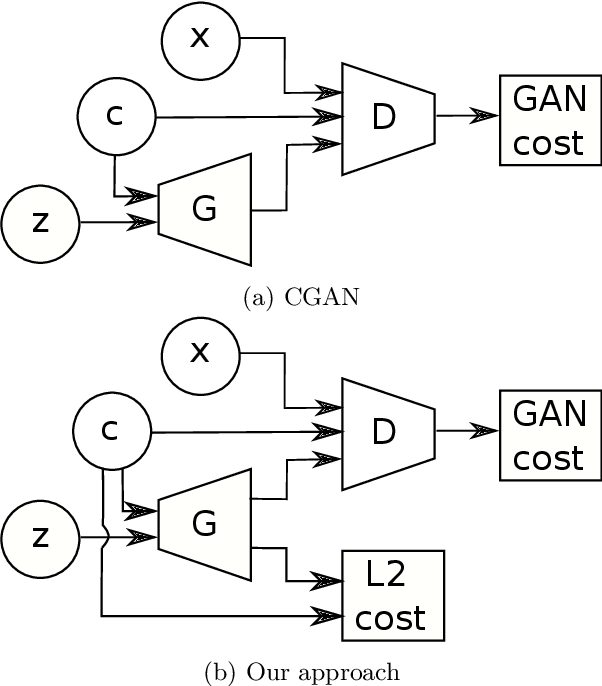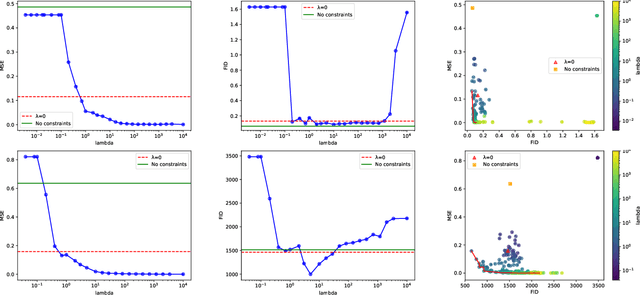Pixel-wise Conditioning of Generative Adversarial Networks
Paper and Code
Nov 02, 2019



Generative Adversarial Networks (GANs) have proven successful for unsupervised image generation. Several works extended GANs to image inpainting by conditioning the generation with parts of the image one wants to reconstruct. However, these methods have limitations in settings where only a small subset of the image pixels is known beforehand. In this paper, we study the effectiveness of conditioning GANs by adding an explicit regularization term to enforce pixel-wise conditions when very few pixel values are provided. In addition, we also investigate the influence of this regularization term on the quality of the generated images and the satisfaction of the conditions. Conducted experiments on MNIST and FashionMNIST show evidence that this regularization term allows for controlling the trade-off between quality of the generated images and constraint satisfaction.
 Add to Chrome
Add to Chrome Add to Firefox
Add to Firefox Add to Edge
Add to Edge